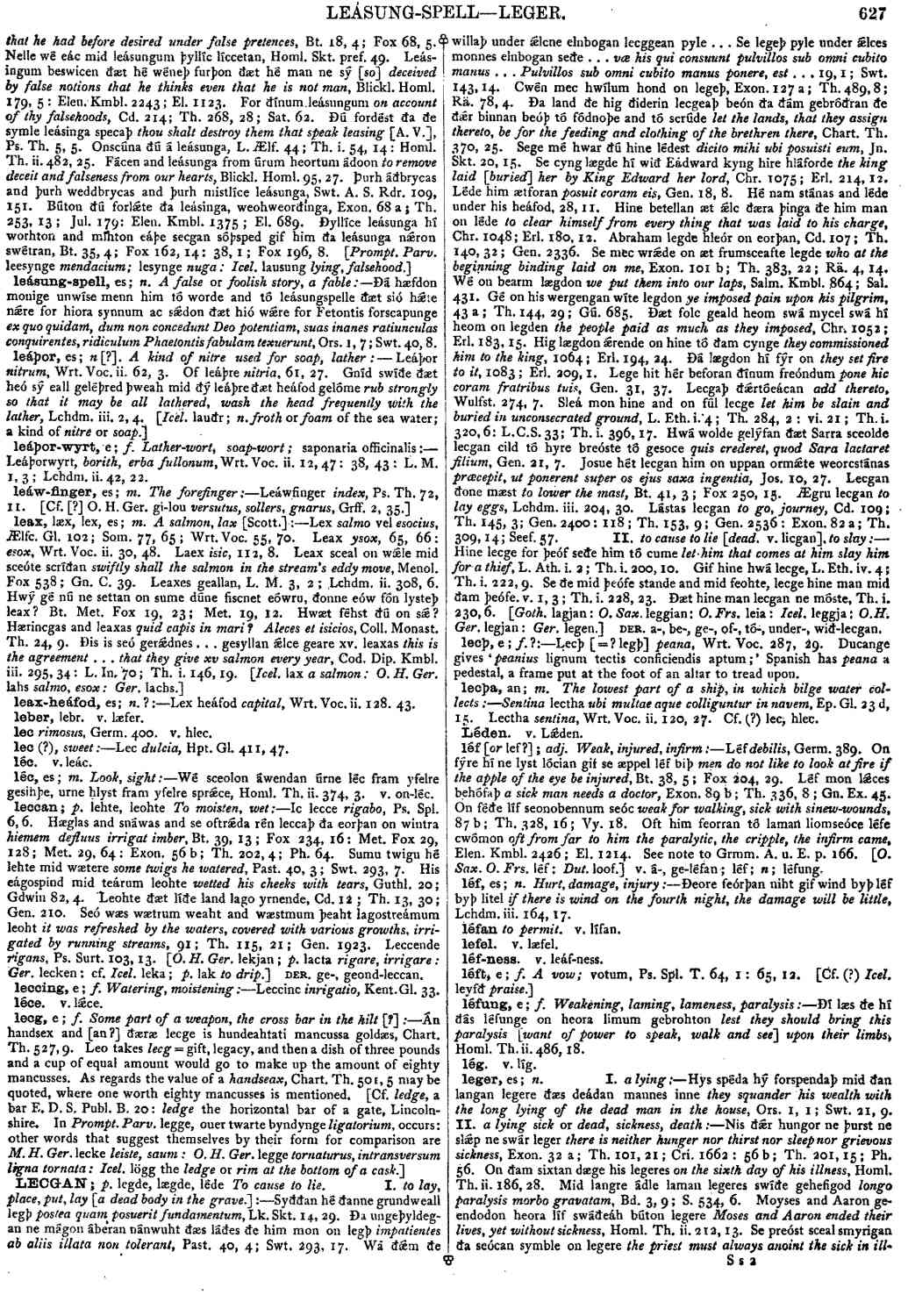léf
- noun [ neuter ]
- adjective
-
Léf
debilis,
- Germ. 389 .
-
On fýre hí ne lyst lócian gif se æppel léf biþ
men do not like to look at fire if the apple of the eye be injured,
- Bt. 38, 5 ;
- Fox 204, 29 .
-
Léf mon lǽces behófaþ
a sick man needs a doctor,
- Exon. 89 b ;
- Th. 336, 8 ;
- Gn. Ex. 45 .
-
On féðe líf seonobennum seóc
weak for walking, sick with sinew-wounds,
87 b;- Th. 328, 16 ;
- Vy. 18 .
-
Oft him feorran tó laman liomseóce léfe cwómon
oft from far to him the paralytic, the cripple, the infirm came,
- Elen. Kmbl. 2426 ;
- El. 1214 .
- See note to Grmm. A. u. E. p. 166.
Bosworth, Joseph. “léf.” In An Anglo-Saxon Dictionary Online, edited by Thomas Northcote Toller, Christ Sean, and Ondřej Tichy. Prague: Faculty of Arts, Charles University, 2014. https://bosworthtoller.com/21330.
Checked: 1